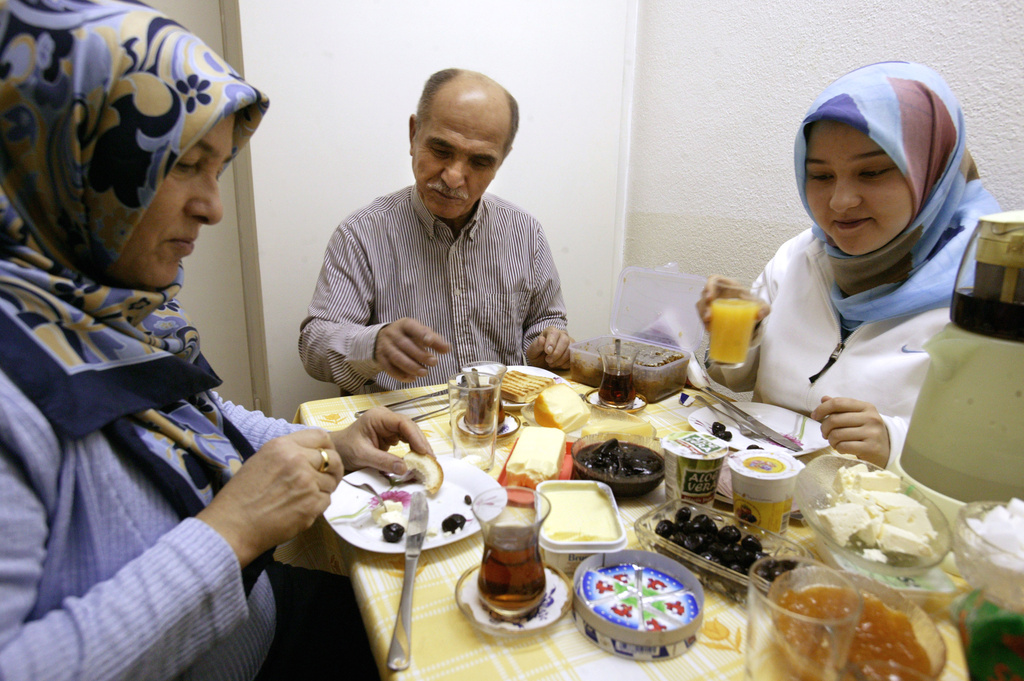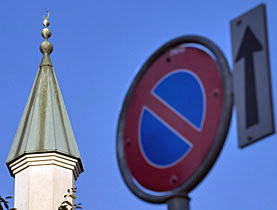Voters used minaret ban to halt spread of Islam

November’s vote against minaret construction in Switzerland can be seen as a signal by voters against the spread of Islam, according to analysis of the result.
Vox Analysis, a study regularly done after nationwide referendums to understand voter choices, found that the vote was not against Muslims or foreigners in principle.
The authors said Swiss xenophobia was not the main reason why the ban on the construction of minarets was passed by 57.5 per cent of voters on November 29. About 40 per cent of citizens who favoured equal opportunities between Swiss and foreigners also backed the minaret ban.
“For many voters it wasn’t against Muslims in Switzerland,” said political scientist Hans Hirter from Bern University at a presentation of the results on Monday.
He said the survey showed that about two-thirds of voters considered Swiss and Muslim lifestyles to be compatible.
This might appear contradictory but it becomes clearer when those who voted “yes” were asked about their motives.
“The minaret is a symbol of Islamic supremacy,” was by far the most popular argument (24 per cent) for backing a ban on future minarets. For the ban’s supporters, it was about making a “symbolic gesture” against the spread of Islam in Switzerland. A closer look by the vote analysis showed that even people who voted against the initiative agreed with this stance.
The argument that the initiative violated human rights – often heard before the vote – did not convince, the survey found. Even those who turned down the minaret ban did not agree with the argument.
Around one in six voters said their decision was a reaction against the discrimination of Christian churches in countries where Islam is strong.
Switzerland was heavily criticised abroad for the vote, with many observers saying that minority rights weren’t an appropriate subject for such a ballot.
Unequal treatment of minorities
In a separate analysis of Swiss voting patterns over the past 50 years, political scientist Adrian Vatter from Bern University said the foreigners and religious minorities suffered at the ballot box.
A study of 300 national and cantonal votes since 1960 found that foreigners and religious minorities were disadvantaged more than any other minority as issues aimed at improving their position were rejected.
Issues concerning a minority were more likely to be rejected when that minority is publicly perceived to be badly integrated and supportive of different moral concepts.
Vatter said Muslims were affected in two ways – firstly because they are a religious minority and secondly because 90 per cent of Muslims are foreigners.
Swiss voters are more tolerant when it comes to language minorities and disabled people. Issues affecting them were often approved at the ballot box over the past 50 years, the study found.
Eva Hermann, swissinfo.ch (Adapted from German by Robert Brookes)
A total of 1,008 eligible voters took part in the Vox analysis.
The research institute gfs.bern carried out the survey during the two weeks after the nationwide vote on the minaret initiative.
Analysis of the data was carried out by the Institute of Political Science at Bern University
The division between left-right in the minaret vote was pretty clear. The right voted more than 80% “yes”, while the left were more than 80% “no”.
Despite the recommendations by the centre-right Radical Party and Christian Democratic Party that their members vote “no”, most decided on a “yes” vote – a difference compared with previous votes regarding foreigners.
Education played a large part in the vote: people with vocational training voted 76% “yes”, while university graduates voted 34% “yes”.
Protestant and Catholics voted about 60% each for the initiative.

In compliance with the JTI standards
More: SWI swissinfo.ch certified by the Journalism Trust Initiative




You can find an overview of ongoing debates with our journalists here. Please join us!
If you want to start a conversation about a topic raised in this article or want to report factual errors, email us at english@swissinfo.ch.